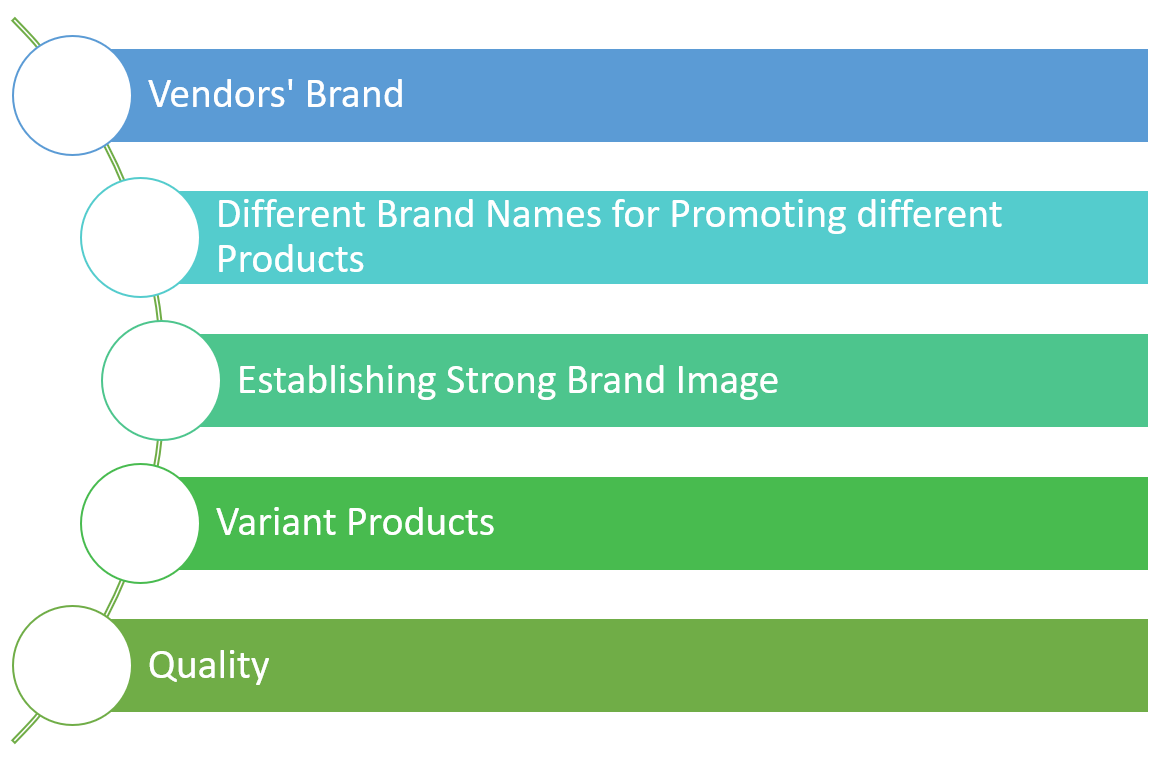National brands are called so because they are supplied all over the country rather than a small area. They are also called non-store brands or manufacturer’s brand. There are some national brands which are sold all over the world alongwith selling within the domestic country. Conversely, the private brands and regional (local) brands are sold by some people and are available only in specific areas. However, it is not easy to sell a national brand as it requires a lot of funds and only big businesses can afford that. A distributor or a manufacturer can be the owner of a national brand. Anyhow, marketing the brand throughout the nation requires promoting it through mass media such as television, radio, newspaper, etc. It is also important to customise the advertisement as per the needs of the local market. The national brands try to ensure appropriate product placement so that the brand is properly known to the public. There are a few national brands that are positioned so well that people use them as generic terms. Customers ask for those brands instead of the product name. Generally, manufacturers produce and manage the national brands. Usually, such brands are popular and well established through the promotional activities of the manufacturer. The retailer does not have to put in much investment for selling these products. The brands promoted by the manufacturer usually have the highest amount of sales. The responsibility of promoting the brand lies with the manufacturer so that an appropriate brand image can be established. Such products are either promoted as individual brand (such as Surf Excel or Tide) or under associated brand names (like Nestlé’s Munch or Cadbury’s Éclairs).
Characteristics of National Brands
The key characteristics of national brands are as follows:

Vendors’ Brand: Everything from designing, production, marketing to selling it to the retailers is done by the vendor.
Different Brand Names for Promoting different Products: Instead of promoting products under a brand name, the vendor uses different names for different categories of products.
Establishing Strong Brand Image: Vendors use a large amount of resources to establish strong brand image for securing loyalty of the customers.
Variant Products: For the purpose of facilitating support from the retailers, certain modifications are introduced in the products for some retailers by the national-brand vendors.
Quality: Usually the quality of the products under the national brands is maintained consistently. Furthermore, an attractive national brand image is established by developing an effective marketing programme.
Advantages of National Brands
Following are the benefits of a national brand:
Recognition: A leading national brand is usually recognised by everyone. For promoting them, a huge amount is spent so that they can be sold easily. However, such a status is not enjoyed by locally produced manufacturer’ s brand.
Pre-Sold to Target Group: The best part about national brands is that some target customers have already purchased those. Moreover, new customers can also be attracted through this advantage.
Better Turnover: National brands promote better turnover as they help in lowering the selling cost related to the expense on promoting them. The image of the manufacturer also helps in this regard. Moreover, it also helps the retailers to retain the customers.
Continuous Flow: Usually, the national brands are available consistently and it takes little time to deliver them after the placements of orders.
Constant Quality Control: Generally, the quality Of national brands is consistently maintained to the extent that customers can even buy them With closed eyes.
Need Fewer Inventories: There is no need for dealers to maintain large inventories for products as they are readily available at the warehouses of the manufacturer or distributor.
Different Prices with Different Retailers: One of the other advantages is that retailer can attract customers by offering discounts on products which are available at higher prices in other stores.
Disadvantages of National Brands
In spite of several advantages of national brand, it has several shortcomings which are as follows:
Lower Profit Margin: One of the main setbacks with a manufacturer’s brand is that there is lower scope for profit in comparison to those produced by the dealer. However, it can be compensated with the increased revenue.
Totally Controlled by Manufacturer: One of the other drawbacks is that the entire control lies with the manufacturer and he can even withdraw the brand from the dealer as and When he/she desires.
Face Cut Throat Competition: The competition is tougher for the wholesalers. In case the customers are loyal to the brand but the dealer is not able to provide it, the customers might switch to another brand. Therefore, it can be said that the customers are not loyal towards the dealer but to the brand.
Heavy Promotional Expense: It is not easy to establish brand image even in case of national brand. A huge amount has to be spent for this purpose. Televisions and other forms of media are utilised for promoting the national brand on a large scale.
Restricted Role of Retailer: Retailers do not enjoy flexibility in this regard. Everything from the display, advertisement and pricing are pronounced by the brand manufacturer.